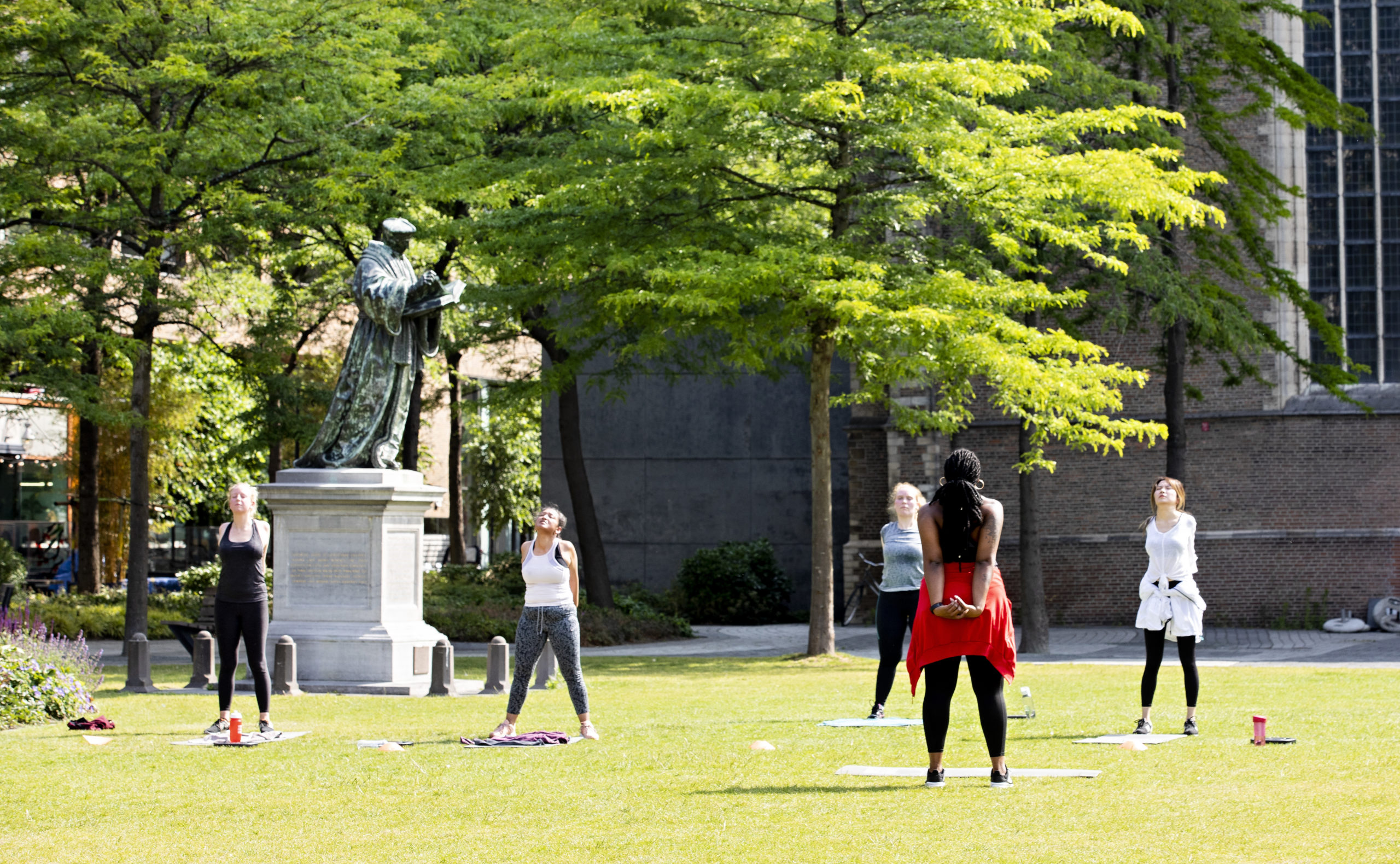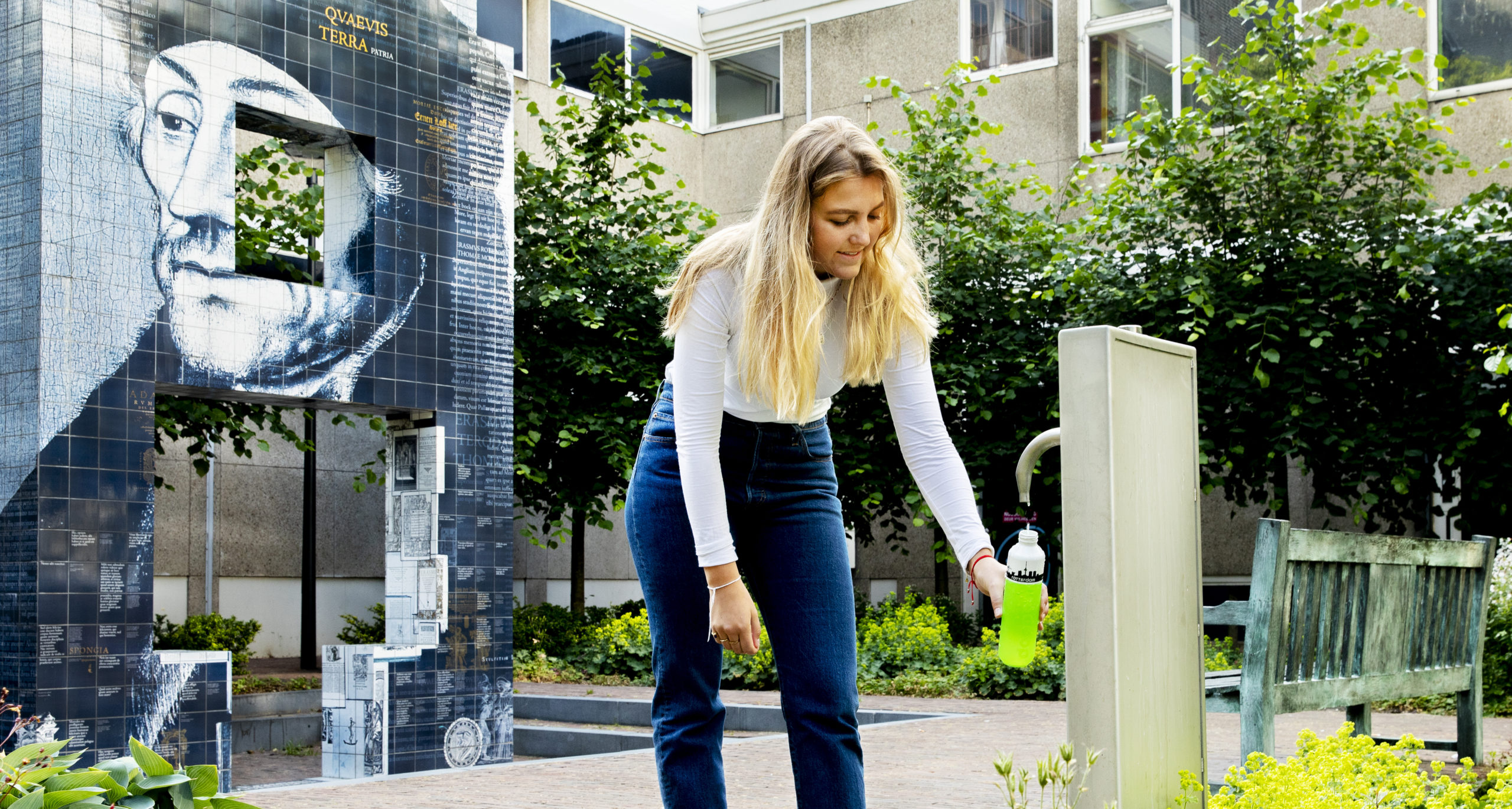
Deploying healthy lifestyle as a medicine
Showcase
We have a growing epidemic of lifestyle-related disease on our hands; think of diabetes or obesity. On top of that, it now also appears that lifestyle can greatly impact the disease progress of Covid-19. Rather than just prescribing pills to deal with symptoms, we would do better to tackle the causes of these lifestyle-related diseases to prevent and cure them. Unfortunately, most medical education is still lacking in this respect, and neither doctors nor students have the expertise and skills to deploy lifestyle as a medicine. Daniel Sieczkowski, a student of Medicine, Healthcare Management and Philosophy at Erasmus University Rotterdam (EUR), wants to change this situation in collaboration with the Student & Lifestyle Association.
Daniel says: ‘60% of all disease is lifestyle-related, but only 1% of subject matter in the medical curriculum is devoted to lifestyle medicine! This is at odds with the fact that a doctor is the first contact for patients, and should be an authority in the domain of healthy living and the curing of disease. Relevant education is therefore essential so that eventually, lifestyle will become a fully-integrated part of the treatment. Student & Lifestyle are committed to achieving this, and by doing so, we want to enhance the efficiency and sustainability of healthcare in the future’.

Deploying healthy lifestyle as both a preventive and a curative tool
Meanwhile, Student & Lifestyle is busy rolling out the course ‘Students Experienced in Lifestyle and Food’ in all Dutch university medical departments, and it has already been completed by more than 1,500 students. The course trains students to deploy healthy food and a healthy lifestyle – including exercise, sleep, stress reduction and mental health – as a medicine at both a preventive and a curative level. Doctors, dieticians, lifestyle coaches, exercise specialists and scientists such as Liesbeth van Rossum, Jaap Seidell and Tamara de Weijer deliver the master classes, and working groups have been set up to study changes to the curriculum, with elective study subjects and minors about lifestyle finding a place there as well.
Tips for a healthy life
Daniel: ‘ “Right now” is always the best time to make the decision to eliminate “bad” food from the diet and start eating and drinking more healthy foodstuffs. If you need any inspiration to help you make the first move, check out the Food First Network online platform, which makes information about healthy lifestyle accessible to a wider audience, or take a look at our Vision on Food‘.
Food producers must be more responsible too
But Daniel’s mission goes beyond that: ‘Food producers will also play an essential part in the move to a healthier lifestyle; after all, much of our food is produced in their factories. Even the degree to which food has been processed may unwittingly cause negative effects, for example, due to a decreased saturation of nourishing elements, meaning that people eat more and gain weight as a result. I hope that the plea for lifestyle medicine will appeal to the common sense and conscience of food producers, and will make them realise that there is also much scope for improvement on their part. We now all have a greater awareness of what is good, and it is up to the food producers to commit to making the effort and acting accordingly’.
Lifestyle as a common thread in healthcare and society
Says Daniel: ‘I want to create this momentum now so that the healthcare of the future can be effectively improved. To my mind, the best way to achieve this is by deploying healthy lifestyle as a medicine. Today’s students are the doctors of the future, and I therefore feel that the provision of better education about lifestyle medicine is the best way of making this the new standard among healthcare staff going forward’. What is the ultimate goal for Daniel and Student & Lifestyle? Daniel: ‘That lifestyle medicine will be a common thread within the medical curriculum, and eventually in healthcare and society alike; a society in which we will all be healthier and happier’.

